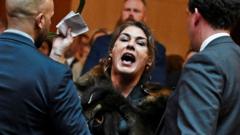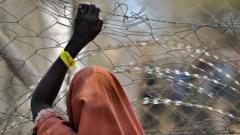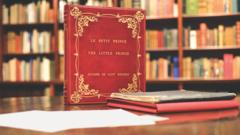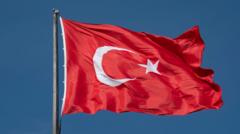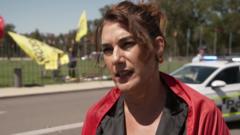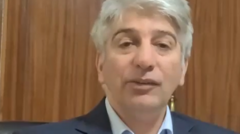Jamie Oliver has pulled his children's book from shelves following criticism from First Nations leaders regarding its portrayal of Indigenous characters and themes. The backlash highlighted concerns over stereotypes, language inaccuracies, and insensitivity to Australia's historical context of child removal policies.
Jamie Oliver Withdraws Children's Book Over Indigenous Stereotyping Controversy

Jamie Oliver Withdraws Children's Book Over Indigenous Stereotyping Controversy
Chef Jamie Oliver faces backlash for his children's book, "Billy and the Epic Escape," prompting its withdrawal amid allegations of harmful stereotypes against Indigenous Australians.
In a significant move, celebrity chef Jamie Oliver has decided to withdraw his latest children's book, "Billy and the Epic Escape," from sale after facing severe criticism for its portrayal of Indigenous Australians. The 400-page fantasy novel, centered around an Aboriginal girl with mystical powers living in foster care and her subsequent abduction, has stirred backlash for allegedly reproducing harmful stereotypes as well as trivializing the traumatic history of Aboriginal and Torres Strait Islander children being forcibly removed from their families.
Oliver, currently in Australia promoting a new cookbook, expressed regret over the situation, stating he was "devastated" to have caused hurt and that it was never his intention to misinterpret a deeply painful issue. The critiques raised by First Nations leaders and individuals highlighted that the book's narrative oversimplifies complex identities and issues faced by Indigenous Australians.
The criticisms came in the wake of the assertion that the character Ruby exhibits magical abilities, reducing "complex and diverse belief systems" to simplistic tropes. This portrayal was deemed particularly insensitive, especially considering the historical context surrounding Australia's Stolen Generations, during which thousands of Indigenous children were removed from their families under assimilation policies. As a result of this history, the ongoing trauma associated with these practices is a significant matter for many communities today.
In addition to the problematic themes, critics have pointed out that the book contains language errors, such as the character originating from Mparntwe, or Alice Springs, while exhibiting vocabulary from the Gamilaraay language, reflecting a lack of cultural awareness and respect for the diversity among Indigenous languages.
Following the outcry, Oliver and his publishers, Penguin Random House UK, announced the decision to cease its distribution worldwide. The publisher acknowledged its "editorial oversight" in failing to consult with Indigenous Australians prior to publication, confirming that the included inaccuracies and insensitivity had not met their publishing standards.
The National Aboriginal and Torres Strait Islander Education Commission (Natsiec), which raised initial complaints, expressed recognition of Oliver's and Penguin Random House's swift action in addressing the controversy. The situation has prompted broader discussions on the representation of Indigenous narratives in media, particularly in children's literature, illuminating the need for responsible storytelling that honors cultural complexities.






